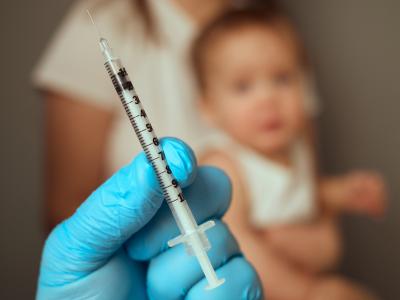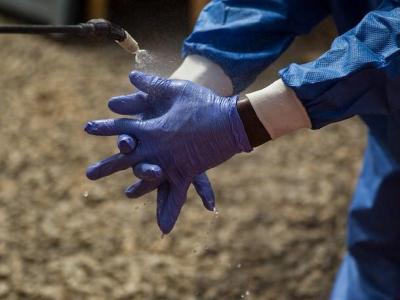MERS infects another in Riyadh, Saudi Arabia
Saudi Arabia's health ministry reported one new MERS-CoV case involving a 54-year-old man from Riyadh, according to a Saudi Ministry of Health (MOH) report today for epidemiologic week 45.
The man is hospitalized for his MERS-CoV (Middle East respiratory syndrome coronavirus) infection, and the investigation revealed he didn't have contact with camels and didn't contract the illness from another sick patient.
According to a recent update from the World Health Organization, since 2012 it has received 2,262 reports of lab-confirmed MERS-CoV cases, at least 803 of them fatal. Saudi Arabia has been by far the hardest-hit country.
Nov 7 Saudi MOH report
Feds share more details about cake mix Salmonella outbreak
Federal health officials today revealed new details about a multistate Salmonella outbreak with potential links to certain Duncan Hines cake mixes, including that the subtype is Salmonella Agbeni and an inspection is under way at the facility that produced the cake mixes.
The US Centers for Disease Control and Prevention (CDC) said ConAgra Brands on Nov 5 recalled four varieties of the mix after Oregon authorities identified Salmonella Agbeni in a box of Duncan Hines white cake mix. The CDC's Pulse Net database, the national subtyping network, identified five infections with the same Salmonella Agbeni DNA fingerprint from three states: Maryland (2), Ohio (2), and Wisconsin (1).
Illness onsets range from Jun 13 to Sep 17, and patient ages range from 26 to 72. Three of the patients are women. No hospitalizations or deaths have been reported.
Interviews with sick people about foods they ate and other exposures the week before they became ill found that two had eaten cake and one reported eating raw cake mix, but brand information wasn't available. The CDC said it is working with state health departments and the Food and Drug Administration (FDA) to see if they ate cake or raw cake mix produced by Duncan Hines.
Antibiotic resistance testing on the strain is under way by the CDC's National Antimicrobial Resistance Monitoring System (NARMS).
Meanwhile, the FDA said today in an update that it is conducting an investigation at the cake mix facility and is collecting environmental and product samples for testing.
Nov 7 CDC investigation notice
Nov 7 FDA statement
Serology study finds 2nd human H7N2 avian flu case in 2016 cat outbreak
A serological survey of shelter workers exposed to cats infected in an outbreak of low-pathogenic H7N2 avian influenza in New York City in 2016 found one additional human case, bolstering evidence of cat-to-human transmission. Researchers from New York City and the CDC reported their findings on Nov 5 in the Journal of Infectious Diseases.
The outbreak was first reported at a municipal animal shelter, following the detection of the H7N2 virus in a cat with severe pneumonia that had to be euthanized. H7N2 had never been reported in cats before, and widespread transmission followed among cats at two more of the city's animal shelters. The spread of the virus raised concerns about possible human infections in shelter workers, and screening tests by the New York City health department confirmed an infection in one person, a veterinarian who had helped obtain respiratory samples from cats.
In follow-up serological testing to see if there were any other human infections and to gauge the exposure risk, the research team tested 121 shelter workers. One had serologic evidence of H7N2 infections, for a seroprevalence of 0.8% (95% confidence interval, .02% to 4.5%). Five people had low positive titers to H7N2, hinting at possible infection, but the researchers couldn't rule out cross-reactive antibody response to seasonal flu viruses.
They concluded that serology allowed them to confirm a subclinical mild infection that would have gone undetected. The patient had experienced mild symptoms, including sore throat, muscle pain, and cough. The individual who tested positive is only the fourth person in the United States to be infected with an H7N2 virus and the only serologically confirmed human infection connected to cat exposure.
Nov 5 J Infect Dis abstract
Dec 27, 2016, CIDRAP News scan "Vet contracts H7N2 from cats in New York City"









